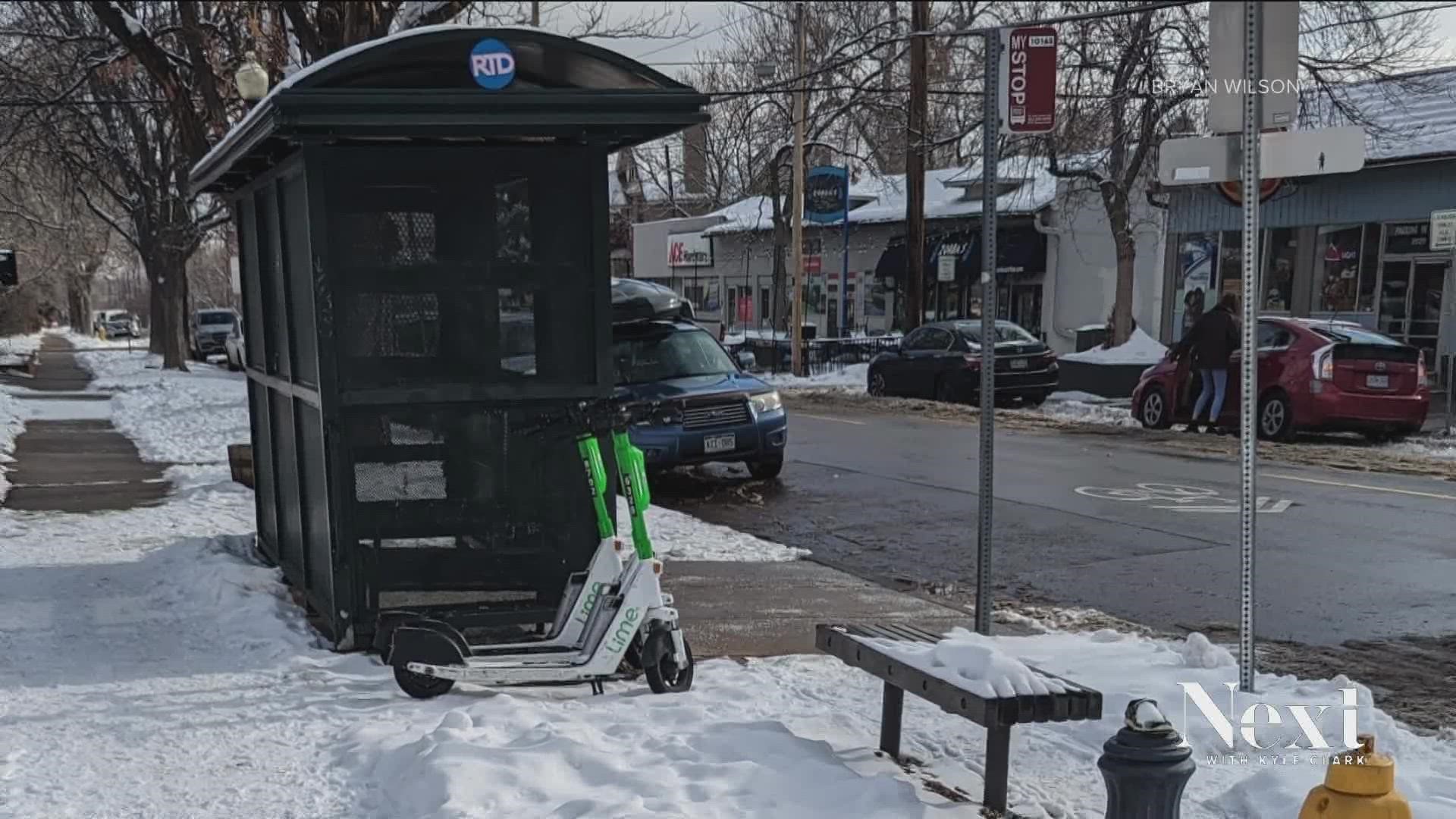DENVER — The last two snowstorms highlighted the challenges of clearing roads and reminded us that some people walk, or bike, or roll around our streets.
Clear sidewalks depend on individual property owners, but figuring out who's responsible for clearing the city's bus stops can be confusing.
Accessibility advocates said they're concerned about bus stops where the shelter itself is cleared but snow and ice block the way to it.
There are less than 300 stops that RTD said it's responsible for maintaining out of thousands of bus stops across their territory.
RTD said for the few stops they do clear, they're only responsible for the area from the curb to the shelter.
Per Denver's sidewalk shoveling ordinance, individual property owners are responsible for all the other stops and the areas around them.
Transporation advocates at Greater Denver Transit, an organization of greater Denver residents who advocate for an accessible, efficient, reliable, safe and inclusive public transit system, say clearing the stop itself isn't enough for people who use wheelchairs.
"You've just got to think as if you're in a wheelchair. The buses have the ramps, I think we've all seen somebody coming off a bus with...that fold out ramp deposits them four or five feet into the pavement, and then they needed to turn them. As a wheelchair user, you then need to be able to perform a 90-degree turn. So that's why we need this space," Richard Bamber with Greater Denver Transit said.
RTD agrees the issue of 'who's going to shovel?' is confusing.
"While ADA standards include the adjacent property, not just the bus stop, or the bus shelter, who is responsible for those components can get really, really muddled," said Joyann Ruscha, director for District B of the Regional Transportation District Board of Directors.
She also noted that accessibility issues like these aren't exclusive to Denver, and that by advocating for improvements, agencies and their constituents can work together.
"We can all do better. The agency can do better, directors can do better, all of us can do better. And that also means that communities can do better as well. I truly believe that accessible transit, safe streets, bike lanes, safe sidewalks, this is a collective community responsibility," Ruscha said.
"Snow shoveling is just part of living in Colorado. This shouldn't be a big task, Bamber said. "And a lot of it is just, please just think of other people. Think of the wheelchair user. Think of the person that is on crutches. Think of the person who's just less fortunate, who isn't completely able bodied, isn't as lucky as you."
You can report accessibility issues at any bus stop to RTD or your local government. but that takes time.
Transportation advocates like Bamber are coordinating volunteer efforts to clear the stops themselves, calling the initiative being a "bus stop snow angel."
SUGGESTED VIDEOS: Next with Kyle Clark

